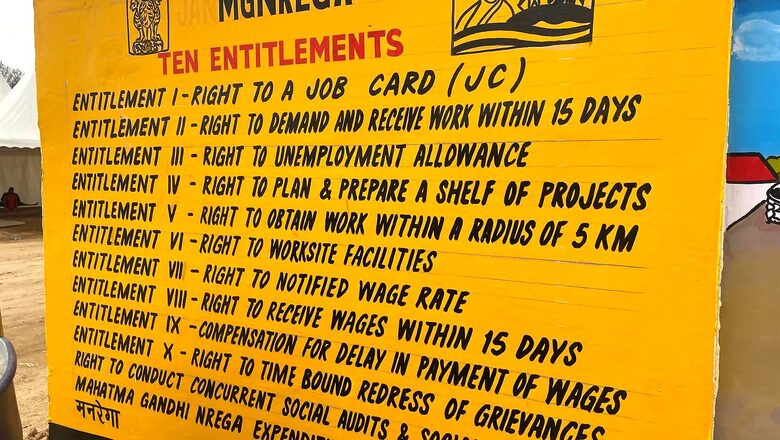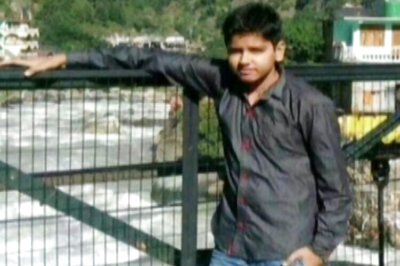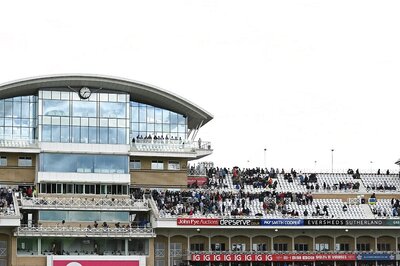
views
Ahead of the upcoming budget for the next fiscal year, steps for revamping the Mahatma Gandhi National Rural Employment Guarantee Act (MGNREGA) — the Centre’s flagship programme — seem underway, with the Ministry of Rural Development (MoRD) setting up a committee to find out reasons for gaps in implementation and under-utilisation of funds under the scheme in several states with low per capita income.
The panel is also tasked with suggesting measures to make the scheme more efficient in its functioning across the country, sources in the government said.
The six-member committee is headed by retired civil servant Amarjeet Sinha, former advisor to the Prime Minister’s Office (PMO) and secretary, rural development. The panel held its first meeting on November 21 and has been given a three-month period to come out with its report.
The setting up of the committee at this time is significant, given that the Union Budget for the next fiscal year will be announced on February 1, just four months from now. The finance ministry on Thursday held a meeting with the department to discuss allocations for the upcoming budget.
The committee will look into various factors affecting employment generation in rural areas under MGNREGA, which has completed 15 years in 2022.
The panel will examine various factors affecting demand for wage employment in rural sectors, study the trends of expenditure across states and reasons for inter-state variation, specific focus on governance issues, examine if composition of MGNREGA’s works requires a change of focus considering the 15-year record of implementation, developments such as extension of education facilities and extensive work from multiple sources in various domains such as drinking water and sanitation.
“The panel will recommend institutional mechanisms, including governance and administrative structures, for more effective utilisation of MGNREGA funds, particularly for addressing poverty and augmenting livelihoods. The idea is to keep greater focus on poorer areas,” said a source familiar with the panel’s work.
The need for setting up a committee was felt as it was observed that many states such as Bihar and Uttar Pradesh have higher levels of poverty and are not able to take as much advantage of the scheme as other parts of the country. “The issue lies in the utilisation of funds per capita or per household. If there are more poor people in an area, then ideally the demand must be higher. However, this is not the case and the committee has to find out the reason for the same,” the source added.
The committee in its report will have to come up with answers critical to the execution of the scheme on ground, including factors that influence demand, if governance and related factors have any bearing on the demands that are made upon the programme and what measures could be taken to improve the implementation and efficiency of the programme.
MGNREGA is a demand-driven scheme. Two years of the pandemic saw the demand soar high, as there were little opportunities in the farm sector while a large number of migrant workers went back to their villages.
According to sources privy to the development, the measures that need to be taken will require the panel to find out if there is a need to change the composition of the works.
“This essentially means should we continue community works, focus solely on individual-related work or should we focus more on the National Resource Management (NRM)-related works since they have a bearing on the treatment of soil and water. The categorisation of work is up to the states to decide, except for the fact that agriculture and allied works have to be 60 per cent of the total works expenditure,” said another government source.
The other members of the panel include professor Ashok Pankaj, Council for Social Development; demographer Sonalde Desai; professor S Jyothis, National Institute of Rural Development (NIRD); and the chief economic advisor among others.
Read all the Latest India News here




















Comments
0 comment